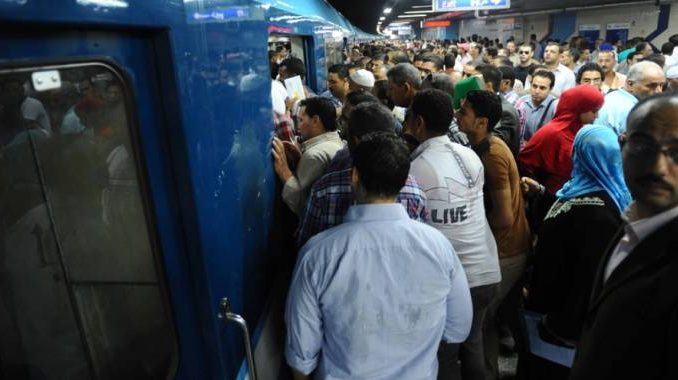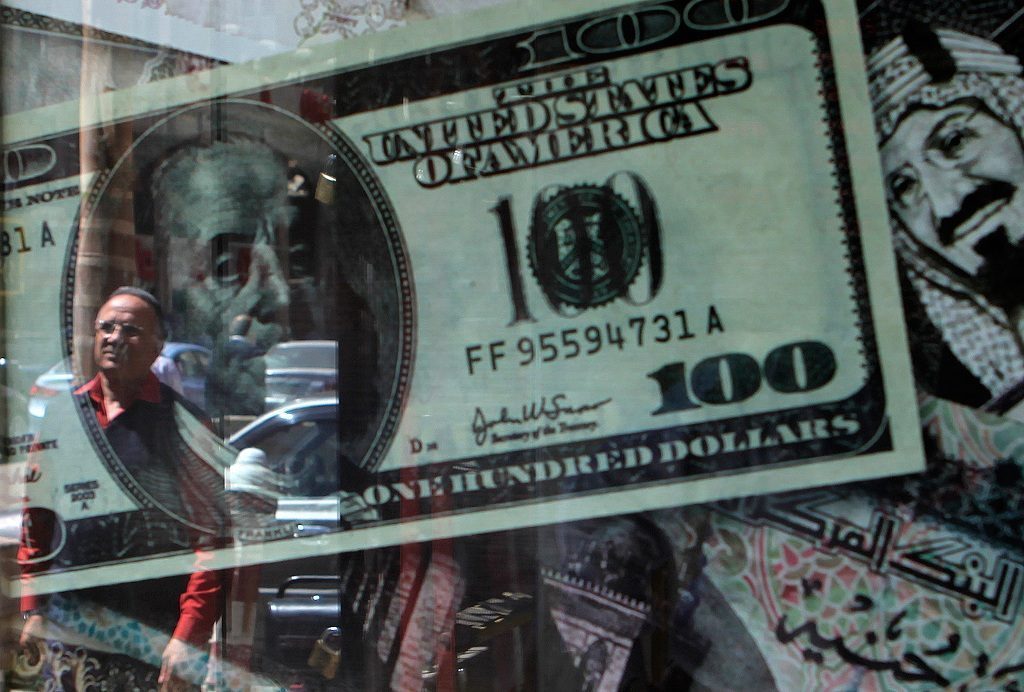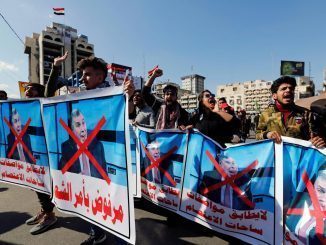
Egyptian police arrested 21 people for taking part in protests against the government’s surprise decision to hike fares on Cairo’s subway as part of austerity measures meant to restore the economy, officials said on Saturday.
The arrests, mostly at Helwan metro station on the southern outskirts of Cairo, took place two days after the government announced the second round of subway fare hikes since March 2017.
The hikes were by up to 250 percent, raising fares from two to up to seven Egyptian pounds depending on the number of stations commuters travel. Videos circulating online show dozens of outraged commuters yelling and chanting anti-government slogans at Cairo metro stations, with some jumping over electronic ticket gates to avoid paying fares.
Other videos showed plainclothes policemen scuffling with protesters while trying to arrest them. One showed a woman berating the men at the station for not being brave enough to challenge the hikes.
The Egyptian government decision set off a wave of angry reaction on social media. Posts showed people demanding it rescinds the decision, with some jumping over ticket barriers, apparently refusing to pay the new fares.
Protests have been restricted in Egypt since the military ousted President Mohamed Morsi, Egypt’s first democratically elected president, in 2013.
A law passed in 2013 banned demonstrations not approved by the Interior Ministry, taking away a right earned in the 2011 uprising that toppled long-time autocrat Hosni Mubarak.
Saturday’s protests were the first by Egyptians angered by the government’s austerity measures, which started in 2014, but escalated after a deal was struck in 2016 with the International Monetary Fund for or a $12 billion loan.
In fact, almost 5 million people a day in the city of some 20 million use the Cairo metro. Running along three lines, it is by far the fastest mode of transport, since nightmarish traffic jams can leave streets gridlocked for hours on end. Only some trains are air-conditioned, leaving people on other trains sweltering in the punishing summer heat. Commuters sometimes face 15 or 20-minute waits, making packed rush-hour trains even more crowded.
It is worth to mention the latest hike in fares is also part of a government drive to lift subsidies on basic items and services and introduce new taxes to restore the country’s wrecked economy; this has included raising fuel prices, electricity and water charges and the introduction of a value-added tax. Those actions met demands by the IMF for the $12 billion bailout loan.
Regular metro users said that the that the new fares were beyond the reach of many households. Among them were 17-year-old Omar Farouk and his two sisters, who were concerned over how their family would be able to afford weekly visits to relatives in a Cairo suburb, more than 16 stations away from home.
Farouk said,”We are a family of seven. Imagine the money we’d have to pay for a round trip.” “The price hikes are understandable generally but making it dependent on the number of stations is too tough for us.”
In the same context, high-school student Abdel-Rahman Tarek blamed the government, saying it should have been “fairer” and “more considerate” of people’s conditions.



